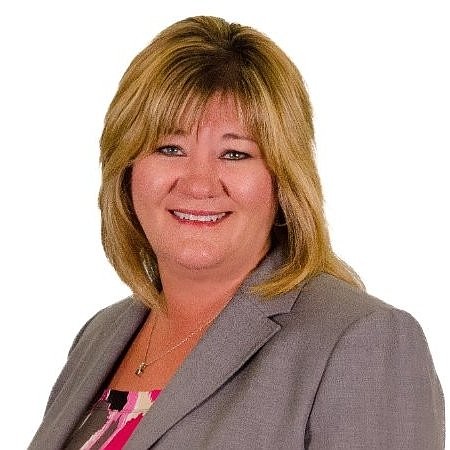
Insurance reforms enacted by the state Legislature in the past few years are expected to help Florida’s policyholders see reduced costs and better access to coverage.
In the rewriting of Florida’s insurance regulations, the response to annual homeowners insurance premiums as much as doubling in three years and an equally rapid decrease in insurance provider options for consumers, lawmakers approved comprehensive changes.
Amendments include limiting attorney fees related to claim dispute litigation, shortening the amount of time a policyholder has to make a claim for damages, and requiring insurance companies to follow proper claims procedures or face penalties levied by the state.
Insurance professionals and lawmakers agree that the effects of the measures signed into law by Gov. Ron DeSantis are yet to be fully felt by consumers.
“The Legislature waited 10 years to do it and it hasn’t kicked in. They left it alone for so long and it festered like an open wound,” said Fitzhugh Powell Jr., president of the Cecil W. Powell & Co. insurance agency.

“It took many years for the state to get into the crisis we have been in and it will take a little while for the crisis to pass, but all of the pieces are in place. We just have to be patient,” said State Rep. Wyman Duggan, R-Jacksonville, chair of the House Insurance & Banking Subcommittee.
Attracting more companies to offer property damage insurance policies in Florida is a critical part of the rate reduction strategy.
“All of the effort the Legislature and the governor have taken over the past two years combined will eventually result in more carriers coming into the state and rates coming down,” Duggan said.
The state Office of Insurance Regulation reported in December that since the reforms were passed, it has taken action to increase competition in Florida’s market including the approval of six additional property and casualty insurers to enter Florida’s market and the approval of the acquisition of an existing company to grow its footprint in the state.
Condo Owners Reciprocal Exchange, Orange Insurance Exchange, Orion180 Select Insurance Company, Orion180 Insurance Company, Mainsail Insurance Company and Tailrow Insurance Companies are newly approved property and casualty insurers, the office reported.
“Competition should result in lower rates,” Duggan said.
But Powell is not convinced that more companies writing insurance in Florida will result in lower premiums.
“There are more companies, but they are going to write insurance at their prices. Florida needs to let insurance companies charge what they want. It’s a business. If you aren’t making money, you have to do something else,” he said.
While the market is adjusting to more competition, another reform – shortening the time allowed between a casualty loss and filing a claim, for wind damage, for example - also is taking a while for its effect to be felt.
“Insurance companies that were writing business in Florida before the new laws took effect are still looking at three or four years for claims. Until that window closes and the new policies are under the shorter timeline, they will still be paying claims and in litigation,” Duggan said.
The next focus: vehicle insurance
With property insurance reform settled, at least for the time being, the Legislature’s next insurance issue to tackle may be the rising cost of motor vehicle insurance.
“Commercial auto insurance is out of control,” said Vicky Zelen, founder and president of Zelen Risk Solutions Inc., a business and personal insurance agency.

“Premiums are going through the roof. I have been doing insurance in Florida for 25 years and this is the worst market I have seen,” Zelen said.
Settlements for damages and personal injury are what is driving up premiums on vehicle insurance, she said.
“One of my clients rear-ended a rusty trailer being pulled by a rusty pickup truck. The trailer hitch was bent, but at the scene of the accident, no one was hurt and everybody drove away,” she said.
The trailer owner turned down the insurance company’s offer to replace the hitch.
“He wanted a new $4,000 trailer, so he got an attorney and claimed personal injury. It became a $300,000 settlement,” Zelen said.
Commercial operators are paying $20,000 to $30,000 per year in premiums to insure a dump truck, Zelen said.
Insurance for pickup trucks used for business also is rising.
“Contractors’ pickup trucks are costing about $8,000 and as much as $12,000 a year to insure. It used to be $3,000 or $4,000 a year for $1 million in coverage,” Zelen said.
Duggan said the Legislature is aware of the drastic increase in commercial vehicle insurance premiums.
The subcommittee drafted and has approved HB 215, introduced Oct. 13 and sponsored by state Rep. Keith Truenow, a Republican from Tavares who represents District 26.
Titled “Risk Retention Groups,” the bill provides that motor vehicle insurance coverage issued by risk retention groups operating under federal law satisfies financial responsibility requirements under state motor vehicle law.
It would allow commercial trucking companies to pool their resources and issue policies to their group of members.
“They would not be selling to the public but within their own group of companies to insure their own trucks. That could address rate relief,” Duggan said.
The bill is being considered by the Commerce Committee.
“We will continue to look at issues facing Florida’s policyholders,” Duggan said.
The legislative session began Jan. 9 and is scheduled to conclude March 8.
Visit tinyurl.com/5kuwx3be and tinyurl.com/2uaznxsz to monitor the progress of bills filed in the 2024 session.
